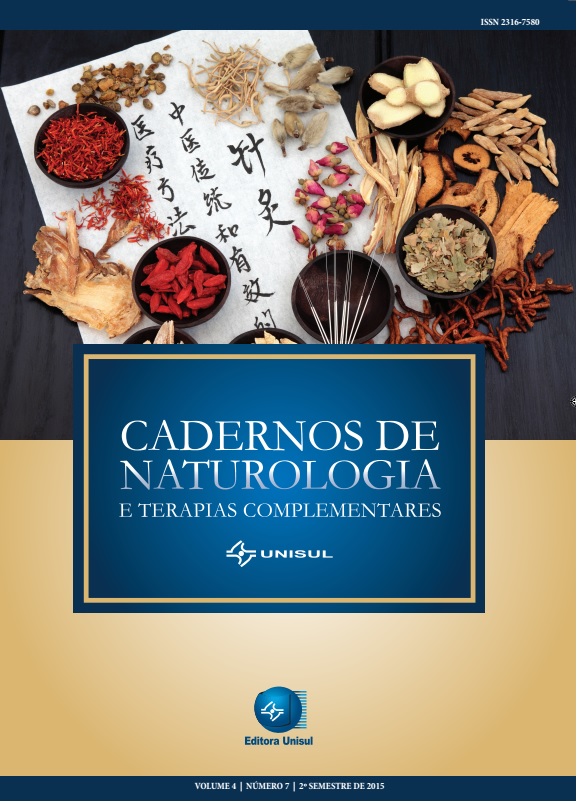Acupuncture in the treatment of cancer in adult individuals: integrative literature review
DOI:
https://doi.org/10.19177/cntc.v4e7201537-47Keywords:
Acupuncture, Neoplasms, Complementary TherapiesAbstract
Cancer is a chronic disease that can trigger devastating reactions in the life of its victims, whether it be in organic, psychic or social features of ones life. Acupuncture, an ancient therapeutic modality, has been used as an adjunct in the treatment of the effects of the disease and / or treatment. The aim of this study was to under¬stand and analyze the scientific literature on the contributions given by acupuncture for cancer treatments in adults over the last five years (2011-2016). This is an integrative review carried out with studies from the fol¬lowing data bases: Virtual Health Library; Latin American and Caribbean Health Science Literature (LILACS) and the Scientific Electronic Library Online (SciELO), using the keywords: acupuncture and cancer. There were 19 articles on the subject studied. The results show that acupuncture has been used for the treatment of pain, anorexia and cachexia, dry mouth, fatigue, nausea and vomiting, anxiety and stress of the upper limb lymphedema, hot flashes, sleep disorders, and peripheral neuropathy, showing positive results. In conclusion, acupuncture appears to be a promising adjunct therapy in the treatment of cancer and its repercussions. Other studies should be conducted to seek scientific evidence relevant and up to date in this area.Downloads
Published
2017-10-19
Issue
Section
Review articles


